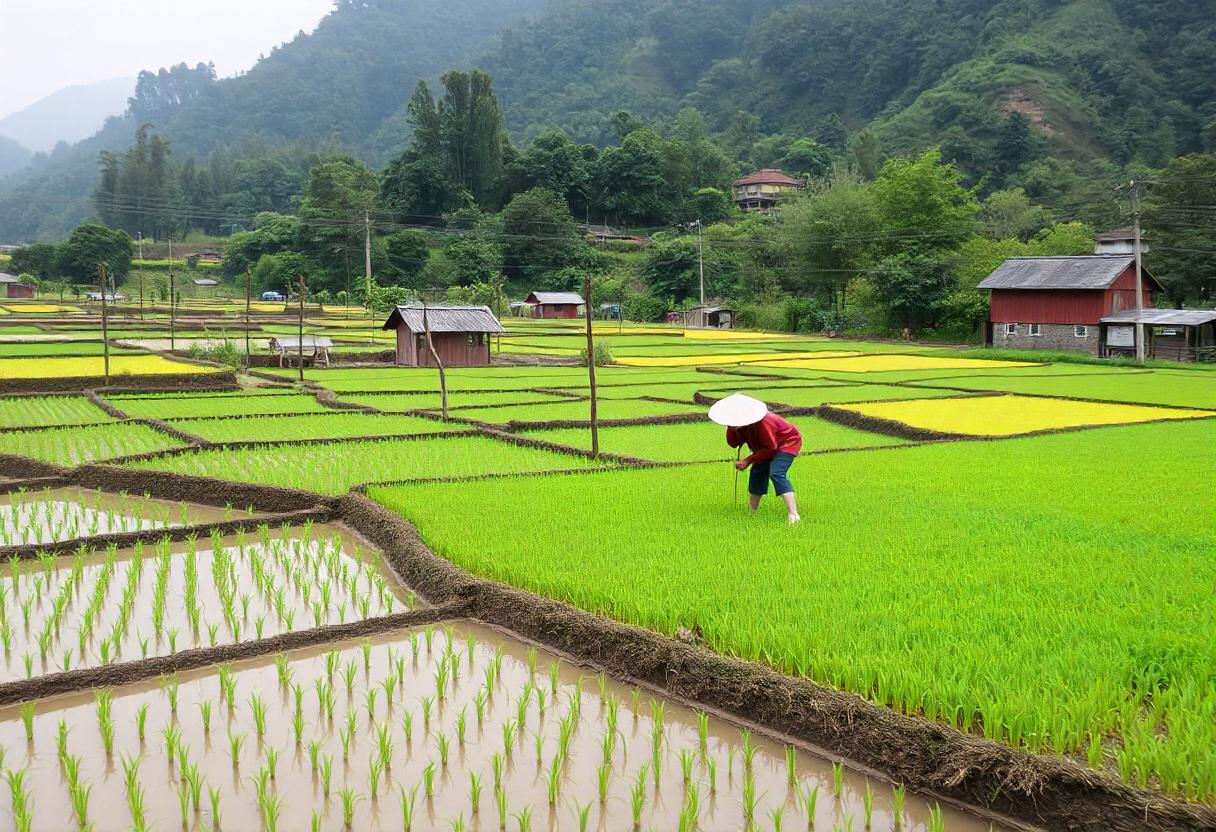
Historical Background
China’s agricultural history dates back thousands of years, with early practices centered around rice cultivation and domestication of animals. Ancient China developed sophisticated farming techniques, including irrigation systems and crop rotation, which laid the foundation for its rich agricultural heritage. The country’s vast land area and diverse climate have influenced its agricultural practices over the centuries.
Major Agricultural Products
China is a major global producer of several key agricultural products. The primary crops include rice, wheat, corn, and soybeans. Rice is particularly significant, with China being one of the world’s largest producers and consumers. Other important products include fruits and vegetables, such as apples, grapes, and potatoes, as well as tea, which is a traditional staple in Chinese culture.
Farming Techniques and Innovations
China has made significant advancements in farming techniques and technology over recent decades. Modern practices include the use of high-yield crop varieties, advanced irrigation methods, and precision farming technologies. The country has also invested in research and development to enhance agricultural productivity and sustainability. Innovations such as drone technology and smart irrigation systems are becoming increasingly prevalent in Chinese agriculture.
Challenges Facing Chinese Agriculture
Despite its advancements, Chinese agriculture faces several challenges. These include issues related to land degradation, water scarcity, and pollution. Rapid urbanization has led to the conversion of agricultural land for development, which impacts food production. Additionally, the country grapples with the effects of climate change, which can disrupt traditional farming practices and impact crop yields.
Government Policies and Support
The Chinese government has implemented various policies to support and regulate agriculture. These policies focus on improving food security, promoting rural development, and increasing agricultural efficiency. Initiatives such as subsidies for farmers, investment in rural infrastructure, and programs to promote sustainable farming practices are key components of China’s agricultural strategy.
Agricultural Trade and Global Position
China plays a significant role in global agricultural markets. It is both a major importer and exporter of agricultural products. The country imports large quantities of soybeans, corn, and other commodities to meet domestic demand. At the same time, China exports products such as tea, fruits, and vegetables to international markets. Its trade policies and agreements influence global agricultural supply chains and market dynamics.